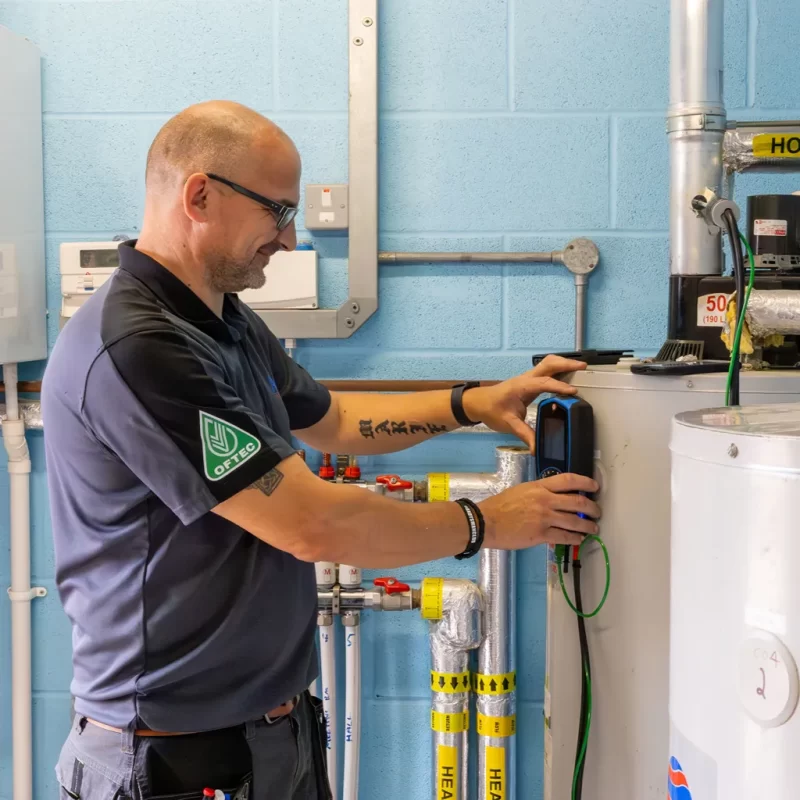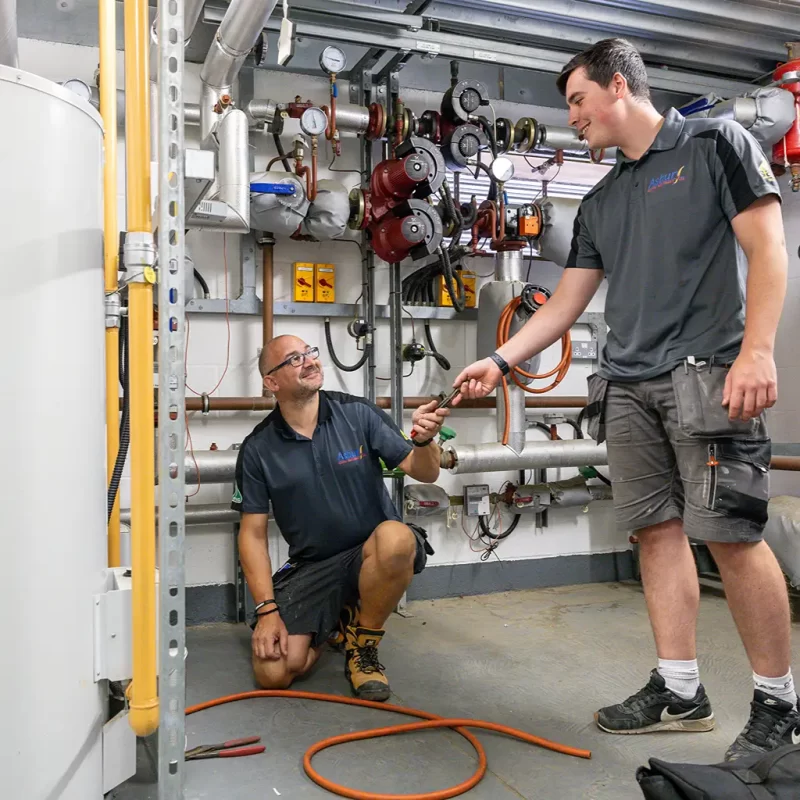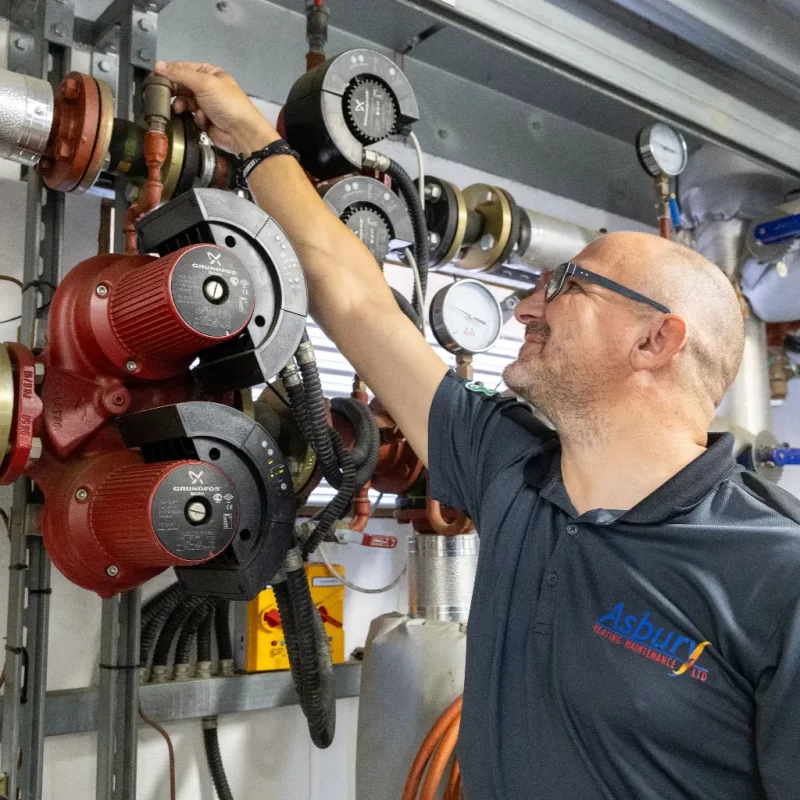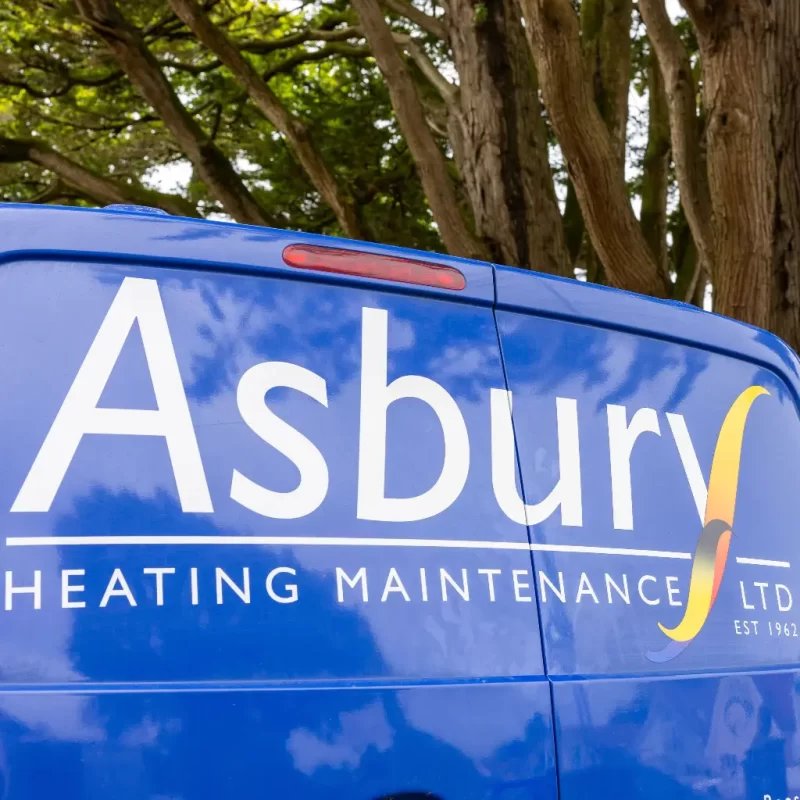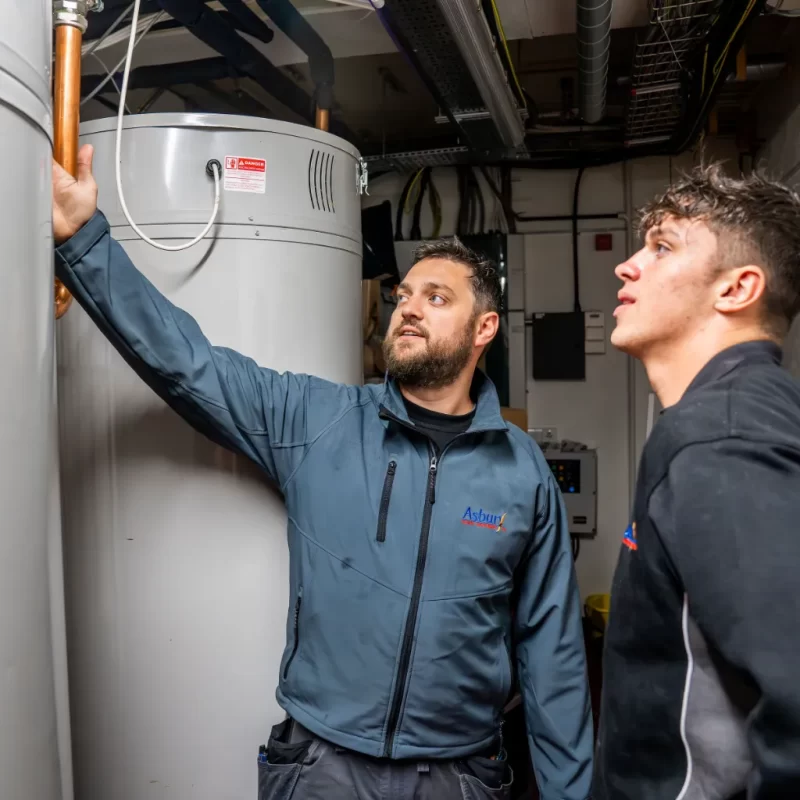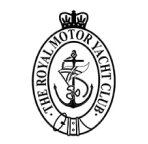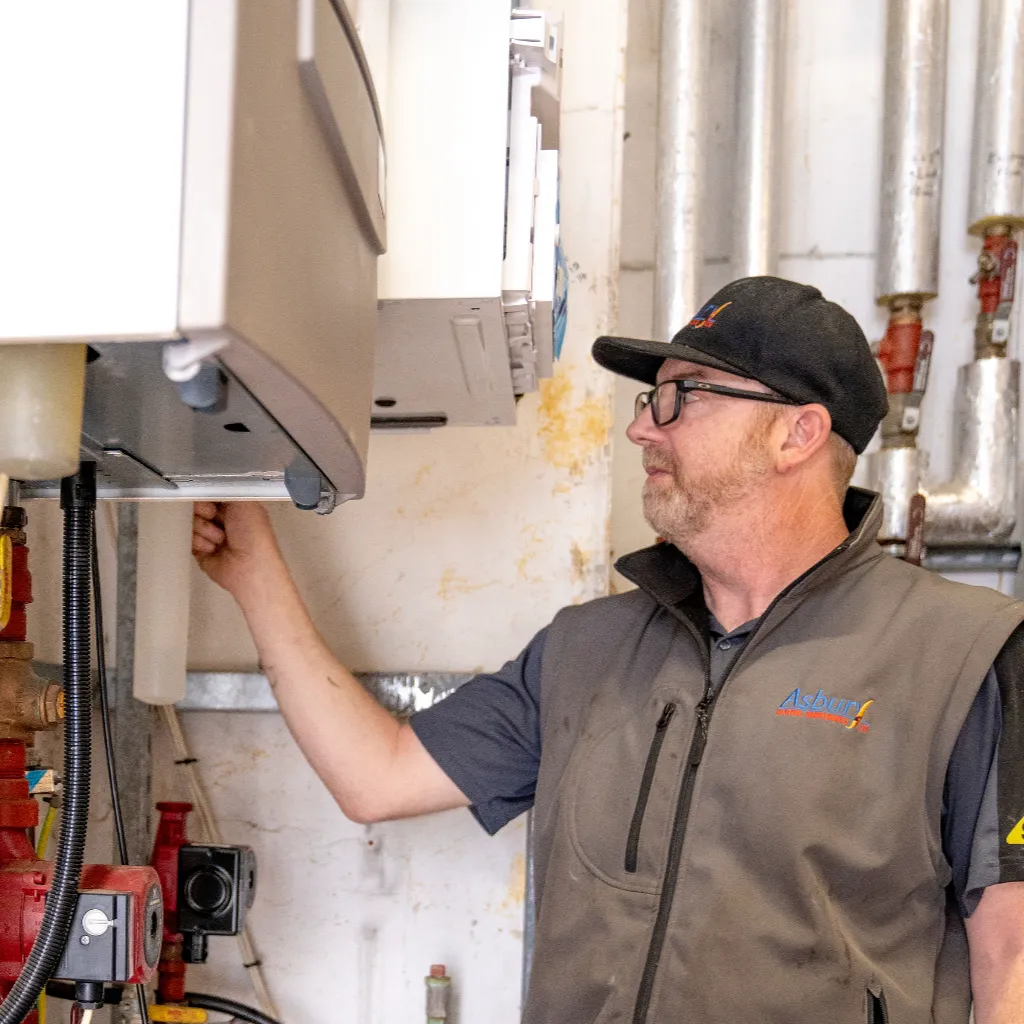
Why an On-Site Boiler Survey Ensures the Right Installation
An on-site boiler survey is a detailed assessment carried out by a qualified engineer before any installation begins. It reviews heating and hot water demand, the condition of plant rooms and pipework, and compliance requirements. This ensures the correct boiler type and configuration are specified at the outset. Surveying lowers risk, while simultaneously improving long-term reliability.
Commercial heating installations must comply with strict UK regulations. The Health and Safety Executive (HSE) enforce the Gas Safety (Installation and Use) Regulations 1998. These regulations apply to non-domestic premises. They put duties on employers, contractors, and building managers to keep workers and the public safe. These rules go hand in hand with Building Regulations Part L. They establish the minimum energy efficiency standards for commercial heating systems. In regulated places like care homes, schools, and hotels, a survey confirms that systems are safe, efficient, and compliant.
Our accredited engineers guarantee that every survey supports a compliant installation. This helps maintain business continuity and energy performance for the system’s entire service life.
Three Key Factors Assessed During a Boiler Survey
When engineers carry out an on-site boiler survey, they evaluate the conditions that lead to a successful installation. The process reviews demand, infrastructure, and compliance. This ensures the correct specification is confirmed and helps minimise disruptions.
1. Heating & Hot Water Demand
Engineers first evaluate daily usage on the site. They consider occupancy patterns, busy times, and the count of outlets. These factors drive boiler sizing and storage requirements. The Energy Saving Trust says that switching from old systems to A-rated models can save you as much as £280 per year. This highlights how important it is to assess demand accurately for cost and carbon goals.
2. Building Layout & Infrastructure
The survey then reviews the technical setup of the building. The plant room’s size, access, existing pipes, flues, and ventilation are scrutinised. This checks if they’re suitable and highlights any upgrades needed. For larger premises, engineers assess if cascade or modular setups can handle peak demand. They also check if these settings can keep capacity and resilience while running efficiently at part load.
3. Compliance & Safety Checks
Compliance is built into every stage. Engineers check gas supply routes, ventilation, flue paths, and control systems. They do this to make sure the proposed system meets Gas Safety requirements and Building Regulations for non-domestic use. Our accredited team hold Commercial Gas Safe, OFTEC, SafeContractor, and F-Gas credentials. This ensures that surveys and installations meet recognised safety and quality standards.

Why an On-Site Survey Prevents Costly Installation Mistakes
A correctly specified boiler system begins with accurate information. Without a survey, you risk undersizing, oversizing, or installing equipment that won’t fit with your current setup. These mistakes raise costs, add operational risks, and might lead to non-compliance with UK safety rules.
By doing an on-site boiler survey, engineers pinpoint the best solution before any installation begins. This reduces the likelihood of downtime and avoids the expense of corrective works later. Building Regulations require non-domestic heating systems to meet minimum efficiency and safety standards. From 2025, the Future Buildings Standard and MEES for Non-Domestic Private Rented Sector will tighten these rules.
Key benefits of early assessment include:
- Matching the boiler’s capacity to the actual heating load.
- Identifying system upgrades or pipework adjustments before work begins.
- Ensuring compliance with Gas Safety and Building Regulations.
- Supporting lifecycle efficiency and predictable running costs.
Our engineers’ surveys are designed to give facilities managers confidence in their investment. We provide advice that includes energy savings, lifecycle value, and installation planning. Many clients choose tailored Commercial Maintenance Contracts. These contracts help ensure long-term performance, compliance, and reliability after installation.
How Commercial Surveys Differ from Domestic
Commercial boiler surveys are broader and more complex than domestic assessments. They account for higher heating loads, larger plant rooms, and the integration of multiple systems across a site. Schools, hotels, and manufacturing sites often need cascade or modular boilers. These systems help meet peak demand while staying efficient at part-load.
Another difference is how the boiler connects to wider building systems. Integrating with a Building Management System (BMS) is common in non-domestic spaces. It helps facilities teams monitor and improve performance. Checking these requirements during the survey helps control and adjust the installation once it’s in use.
Compliance is also a key factor. Non-domestic heating systems must follow stricter safety and operation rules. These are outlined in the Gas Safety (Installation and Use) Regulations 1998. Engineers verify that the gas supply, flues, ventilation, and access routes are safe before installation.
Key areas that make commercial surveys distinct include:
- Scale of demand and capacity planning.
- System resilience through cascade or modular designs.
- Integration with BMS for performance monitoring.
- Higher safety and compliance requirements.
Our engineers work in many sectors, like schools, care homes, hotels, and councils. This experience helps our engineers grasp the challenges of regulated environments.

The Asbury Heating Survey Process & Next Steps
At Asbury Heating, surveys are carried out by accredited engineers with decades of experience. The process is structured to ensure every installation is safe, compliant, and efficient.
- Site Assessment: Engineers look at heating demand, plant room conditions, and infrastructure to set the design baseline.
- System Design & Quotation: A tailored design is prepared to match layout and compliance needs, with a clear quotation.
- Compliance Review: All recommendations are reviewed to meet UK Building Regulations and Gas Safety standards. Accredited engineers carry out the installations.
- Planning & Support: Work is scheduled to minimise disruption, with provision for testing and purging or BMS integration.
- Handover & Servicing: Commissioning includes full documentation, and ongoing commercial servicing keeps systems efficient and compliant.
This approach makes the on-site boiler survey the essential first step for a reliable installation. Our team has over 60 years of experience. We hold accreditations like SafeContractor, Commercial Gas Safe, OFTEC, and F-Gas. Because of this, we’ve built trust in Dorset, Hampshire, and Wiltshire. Our Case Studies and Testimonials show how detailed preparation delivers long-term results.
Call 01202 745189 or get in touch arrange your on-site boiler survey and secure a system designed to perform from day one.



